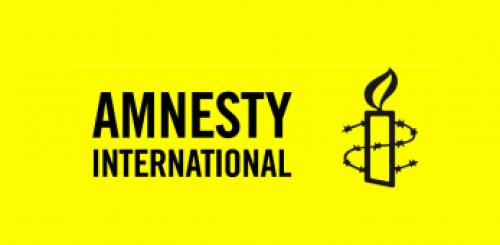Colombia has failed to comply with its international obligation to guarantee a safe and enabling space for the defence of human rights in the country, but today it has the opportunity to change this, Amnesty International will say at a public hearing in Congress on the situation of human rights defenders in Colombia today.
“The Colombian state is still failing to address its historical failure to put in place a comprehensive response to the dangerous situation defenders face in the country. Threats and attacks against human rights defenders continue to occur day after day, making Colombia once again the most lethal country to defend human rights,” said Fernanda Doz Costa, deputy director of research for the Americas at Amnesty International.
“The hearing in Congress is a unique opportunity to set out a path for Colombia to make progress in protecting human rights defenders and to discuss how authorities that do not act diligently to address the grave situation faced by human rights defenders in the country can be held to account.”
In recent years, Front Line Defenders and Global Witness have consistently ranked Colombia as the country with the highest number of killings of environmentalists and human rights defenders in the world.
In October 2020, Amnesty International set out a series of recommendations for the comprehensive protection of defenders at national level and in four cases in particular. However, to date, the Colombian authorities have done very little to guarantee safe conditions for the defence of human rights in the country. They continue to promote a protection model that has proven to be ineffective because it is based solely on material protection measures; on issuing laws, decrees and regulations that lack the means to ensure that they are properly implemented; and on measures aimed at individual protection rather than a collective approach.
Likewise, the authorities have made very slow progress on various processes that could address the structural causes of violence, including investigating threats and attacks, recognizing Indigenous territories and dismantling armed groups. On the contrary, they have adopted measures that increase the dangers defenders face, such as, for example, the decision to resume the forced eradication of illicit crops and to reduce National Protection Unit protection schemes during the pandemic.
The Colombian Congress has called a public hearing on the issue today to demand accountability for the lack of security guarantees for human rights defenders and civil society leaders in the country. Civil society organizations and defenders will participate in the hearing, such as María Ciro, a representative of the Catatumbo Social Integration Committee (CISCA), who are having to live with risk because of their work defending human rights and lack adequate protection from the state. State institutions responsible for guaranteeing their protection are also expected to participate.
The case of defender Jani Silva is an example of the lack of an adequate response from the Colombian authorities. Throughout 2021, she has been the victim of a number of threats from armed groups for her work defending human rights, even though she has been given material protection measures by the National Protection Unit and has been granted precautionary measures by the Inter-American Commission on Human Rights. The latest incident resulted in her being forcibly displaced due to the high risks she faces. As long as the authorities do not adopt measures that can mitigate the structural causes that put Jani Silva at risk, she will remain in danger, compromising her defence of human rights.
The organization also notes that the Ministry of the Interior has not succeeded in establishing collective protection plans for the Association for the Integral and Sustainable Development of the Amazonian Pearl (ADISPA), the Black Communities’ Process (PCN) or the ASEIMPOME Indigenous community, despite the fact that they were requested several years ago. The slowness of the Ministry of the Interior in establishing collective protection plans shows that the authorities have not been able to address the structural causes of violence against individuals and groups who risk their lives to defend human rights.
“The state continues to address the risk faced by human rights defenders from a totally regulatory, material and individual perspective, and not from a practical, collective and transformative perspective. The protection of defenders should not be based solely on theory, but on the practical measures and the solutions put forward by the individuals and groups at risk themselves. If the authorities listened to their voices, there would be a significantly safer environment for defending human rights in Colombia,” said Fernanda Doz Costa.
“All three branches of the state have human rights obligations, so it is imperative that Congress make the issue of defenders a permanent part of its agenda, including through the creation of a Commission for the Verification of Guarantees for Human Rights Defenders that can hold to account those officials in the Executive who do not fulfil their duty of protection”.
Media Contact
Cory Ruf
Media Relations
416-363-9933 x344
media@amnesty.ca























